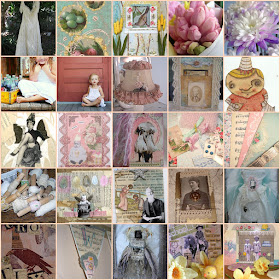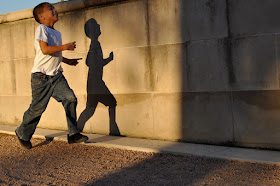Parenting this other way is about respecting children, for
their humanity, for the truth of their experience, for their body’s wisdom, for
their inborn genuine goodness, for the people they were before they were born.
The cool thing about parenting this way is that one of the
primary results is that children raised respectfully become respectable and
respectful. Exactly the opposite of what the critics up there formulating their
outraged comments get. And, for most people, that is a happy accident and a side-effect
of why they are parenting this way.
Treating People Well Feels Better
We treat children this way because it feels better (to ourselves) to be kind, and sometimes because we can remember what it felt like to feel respected as children (if that ever happened to us) and what it felt like to be on the receiving end of being controlled by systems, rules, clocks, and adults determined to get their own way, and not listen, no matter what.
We treat children either the way we were treated (there are
many, many adults walking around today who were never bribed or threatened,
never made to pretend to sleep when they weren’t tired, or required to comply
with mercurial demands), or the way we have decided is respectful.
Specifics?
This whole way of parenting is 180° from how most people think about
and talk about children, so for newcomers to this idea, one of the hardest
ideas to convey is the foundation of why words like ‘misbehaviour’ (‘acting
out,’ ‘making poor choices,’ whatever) and ‘obedience’ (‘listening,’
‘cooperating,’ and ‘minding’) are not relevant.
My goal as a mother was never to create compliant or
obedient children who never misbehaved. Starting with a single fact: children
do not ‘misbehave’ –they just behave. They do the best they can with what they
understand as far as they are developed at this point.
Kids just behave.
They do the best they can with what they understand as far as they are developed at this point.
That sometimes their behaviour
makes a mess, or causes problems for others, or hurts someone is not a reason
to punish them, but a reason to understand what they were attempting, and to
see if there is a way to accomplish what they were trying to do that doesn’t
have the unfortunate effects adults don’t want (like having to clean up messes,
bothering others or hurting people or animals.)
I love this flowchart
because until a child is rational, the child is not rational,
so things that seem rational to adults will never seem rational to children
(and vice versa.)
My Whole, Complete Newborn Human
When my eldest was born, I was looking into the face of an
obvious person, a real live human being who was already completely present. She
wasn’t going to be sub-human, or a fake person, until magically turning into a
human being (an adult), or a real person, at some date far in the future.
It was perfectly obvious to me that she was also completely
whole and good. She was a 3-minute-old human person. She wasn’t 0/12th
of a 1-year-old. She wasn’t 0/228th of a 19-year-old. She was not
partly a person, or an empty bucket to be filled with my brilliance and wisdom,
like some sycophant breathlessly awaiting the installation of the wise woman’s
delicate pearls of knowledge.
I have no idea how anyone can look into the eyes of a
newborn and see evil, except to say that people do not see the world as the
world is, they see the world as they are: evil people see evil everywhere,
regular people can’t figure out what they’re talking about.
The next obvious thing to me was that I could not know
better than my daughter when she was hungry, tired, bored, overwhelmed,
curious, content or enthusiastic. That was all about her own internal
experience, and I could not feel how full (or empty) her stomach was, not only
because I had no way of knowing what number of calories she was burning, but
also because I had no idea how many calories she needed or how fast she was
digesting her food.
I could certainly not declare that x-many minutes of sleep
was insufficient or too much for that body now. And it dawned on me that the
clock, and any distant self-declared expert, was certainly never going to know
more about her immediate need (or lack of need) for sleep than her body.
From this I learned to trust her. I respected her experience
of herself and her life, and had the most wonderful ride imaginable, watching
her grow from herself as a tiny newborn into herself as a full-grown, married,
beautiful and intelligent and kind and respectable woman.
I made a lot of mistakes along the way, and every single one
of them were from listening to people who knew ‘better’ than she did what she
needed, what she was trying to accomplish, and what she ‘meant.’ They were
almost always wrong, and they were usually deeply disrespectful in the process.
She was right, she always knew: this is what I am interested in now, this is
me, this is what I want and need, this is my life, this is what I want to
attempt to accomplish.
 And, because I have clearly been well-behaved in some life, I also got to have another daughter, totally different and exactly the same as the first: whole, complete, already human at birth.
And, because I have clearly been well-behaved in some life, I also got to have another daughter, totally different and exactly the same as the first: whole, complete, already human at birth.
When people compliment me on my daughters, which happens
often, I always demure: they came this way, I just limited how much I screwed
them up.






Brilliant. I love you! Congratulations on growing up human in spite of me.
ReplyDeleteHa ha! Thanks, Mom!
Delete